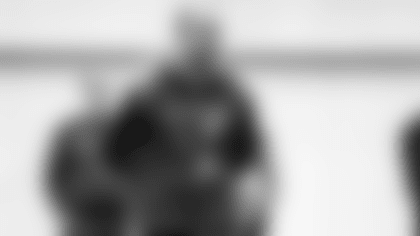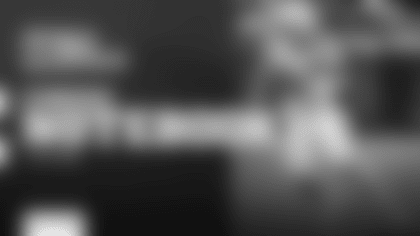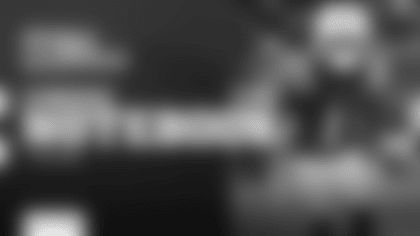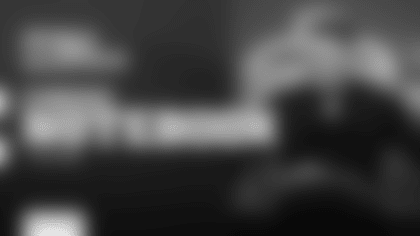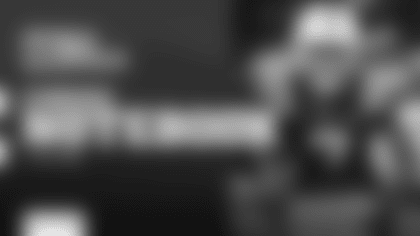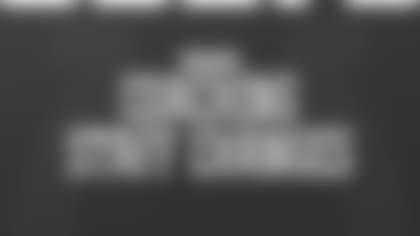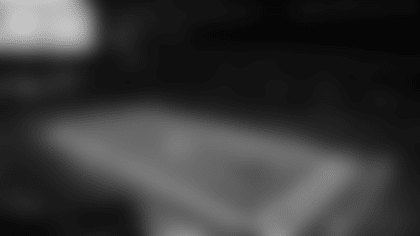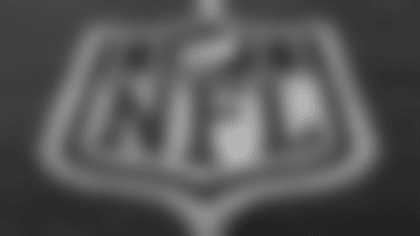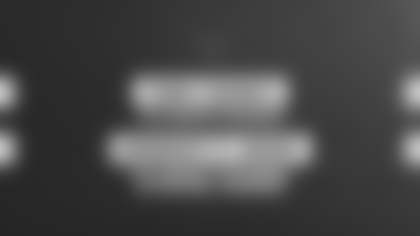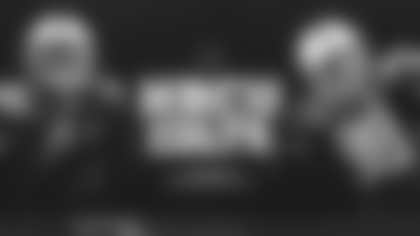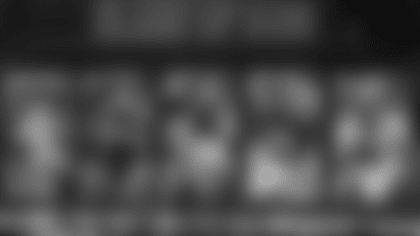Bill Polian is in his first season as Colts vice chairman after spending the previous 13 seasons as Colts president. Polian has a resume unique in the NFL. The only man to win NFL Executive of the Year six times, Polian in the 1980s built the Buffalo Bills into a four-time Super Bowl participant. In the mid-1990s, he built the expansion Carolina Panthers into a team that made the NFC Championship game in its second season, 1996. Since joining Indianapolis in 1998, he built the Colts from a 3-13 team in 1997 and 1998 into one that has made the playoffs 11 of the last 12 seasons, including AFC Championship game appearances after the 2003, 2006 and 2009 seasons, an AFC East title in 1999, AFC South titles in 2003, 2004, 2005, 2006, 2007, 2009 and 2010, Super Bowl appearances following the 2006 and 2009 seasons and a Super Bowl championship following the 2006 season. Each week during the season, in The Polian Corner, Polian and Colts.com will discuss issues pertinent to the Colts and the rest of the NFL.
The Polian Corner will run in two installments each week. Below is this week's second installment:
Q: How is the sideline communication system kept secure so that people do not listen in who should not?
A: It's a very good question. The radios are encrypted so that the coach-to-quarterback and the coach-to-defensive signal-caller are on separate lines, and they are encrypted so that no one can tap into them. I know of no instance either with our team or hearing it from anyone else in the league of anybody tapping into the lines. There is a cut-off switch on the coach-to-quarterback when the play clock gets to 15 seconds (and) that switch is to be cut off. There are instances in the past where that was not always done and there are certain places in the league where there is quite a bit of interference with the coach-to-quarterback in terms of static and cutting in and out and things like that. That is largely attributable to a great many frequencies that are used in stadiums these days. There's kind of a funny story there was a time, and I won't mention the stadium, when (former offensive coordinator) Tom Moore would be calling the play into Peyton (Manning) and you'd hear a taxi dispatcher on the line (laughing). I don't know if he had a good play or not. That's largely been rectified by the league office and others as time has gone by because of technology and things of that nature. So now it's both encrypted and usually pretty interference-free. It's a very efficient system and has solved the crowd noise problem, which was a great problem for a great deal of time. But it was not without its bumps in the road in the early going.
Q: With Saints Head Coach Sean Payton being in the booth this week because of his injured leg, how do you think that will affect the team and his play-calling, and can you take advantage of that?
A: Well, I don't know that it will affect the play-calling at all. You are piggy-backing on the previous question. Sean cannot call the play directly down to Drew Brees. The plays have to be, by rule, called from the bench, so Sean will call them down to someone on the bench who will call it into Drew. I don't think it will affect the play-calling one iota. It might be a bit more cumbersome, maybe a second or two more in the hurry-up situation. I think they are used to doing that any way. Most teams practice for untoward situations. As I mentioned before, if there's interference, if the phones go down for some reason, so I don't think it will affect them one iota. If anything it will give Sean a better look at what's going on defensively. I don't know that it will be a hindrance at all, and I don't know if there's anything we can do about it other than try to play the best defense we can play against an extremely explosive team.
Q: How often have you seen people get hurt on the sidelines like what happened to Sean Payton?
A: It is a very dangerous place to be. It seems to me it gets more crowded every year. We used to just have the active players down there. Now we've got the inactive players, we've got some practice squad guys and all the people from the league—Dr. K who handles the K-ball, the instant replay communicator, some security people. It's getting more crowded. I'm not surprised, although very chagrined, that Sean was hurt. I'm surprised there isn't more of that, particularly among the coaches who are so focused on what is going on on the field. I do remember Jim Ringo, who was a Hall-of-Famer and was our offensive line coach with the Buffalo Bills, having a very similar injury to Sean, except that he dislocated his knee in addition, right here in the RCA Dome. Jim came on and coached on crutches in the second half in the toughest display of anyone I've ever seen. If you knew nothing else, having seen that you know why Jim Ringo was in the Hall of Fame.
Q: Is he one of the toughest guys who ever played?
A: If he's not, he's in the top five.
Q: Is there an NFL rule that restricts how many replays you can show on the in-stadium screen while a play is being challenged?
A: There is a rule that while the referee is under the hood, you can show only what television has. Many times they will not have gotten it upstairs from television quickly enough to put it up there. What you are seeing on the board in Lucas Oil Stadium many times is footage shot by our own people who are down on the field or up in the press box, and the rule is you can only show what's on television. Many times they don't get the television feed in time to show it up there, and they can't show the in-stadium feed. That's why it works out that way.
Q: Sunday on the Austin Collie catch review, the only shot we saw involved shadows and you could not really see all that much, could you?
A: Yesterday was one of those games that probably did not go beyond the borders of Ohio or Indiana and probably not past Columbus (Ohio), in reality. They have fewer cameras at those games than they use for example at Dallas and New England, which was the 4:00 p.m. game. You get fewer replays from fewer angles, and you are right (about not having many camera shots). I think we were right to challenge it, but the shadows were such that you couldn't get a good view of it. Austin (Collie) swore he caught it and I believe him, because he's not one to try and mislead people along those lines. He's very conscious of it. It looked to me, looking at the end zone tape, that he caught it, but we didn't have a good enough view of the football for the referee to overturn (the call). It's just one of those things. That's one of the inequities of instant replay. When they have more cameras, the teams in those games have a better chance to overturn a replay than you do in other games. Ironically enough, Paul Brown, who was the leader of the anti-replay faction when replay first came in, recognized that and thought that was the strongest argument against it, that it was inherently inequitable.
Q: On the play with Pierre Garcon, was it close that his elbow was down before the ball came out?
A: Yes, it was very close. Again they didn't have a definitive angle where the official could say, 'I can overturn this.' You have to have incontrovertible visual evidence and that was John Parry, who happens to be a terrific referee. By rule he couldn't overturn it unless he had incontrovertible evidence, and it wasn't there. You could tell it was awfully close, but you can't overturn the official's call unless you know for sure.
Q: Donald Brown seems to be a 'downhill' runner. Is that a skill he and other runners might have, or is it something that can be coached?
A: That's a very good question. Donald is a big-play runner in that he's 205 pounds and he's a guy that who relies on speed and acceleration to make plays. He has improved greatly this year in being a downhill runner. He's running much more behind his pads. He's running much more in a situation where he's getting low and being able to drive his legs and shear off tackles, which he did on that trap play he ran right up the middle. He's learned to use his speed in such a way that helps him running downhill. Coach (David) Walker has done a terrific job working with him on that, and he's (Brown) done a terrific job developing it. It's hard to change your style. He was kind of a bounce-out runner, a bounce-outside runner prior to this year. He's really worked hard to develop that, and, of course, he is a home-run hitter. When he gets outside, he can take (it) the distance. He's got the great vision. He can see it and he can outrun almost anybody. As I said earlier in the show, Cincinnati is a very good defensive team and they have people that can run. Donald's done a terrific job in developing his skills. Delone Carter is more of a natural downhill runner as opposed to a bounce runner. I have to say Delone's developed great running instinct as well. He didn't show that at Syracuse to the degree that he's doing it now. He's got lots of elusiveness and lots of run instinct in traffic that I think he's developed since coming into the league.
Q: Curtis Painter is really showing signs of being a solid player who could be a part of future plans, isn't he? Also, the AFC South is still up for grabs, right?
A: Thank you. Let's talk first about Curtis. This season, this full season, the 12 games that he's going to play, will tell us a lot about Curtis' future. I think what we've seen in the four games that he's played thus far is that he is a very competent back-up quarterback in this league. That's to his credit and to Jim Caldwell's credit and to (former quarterbacks coach and now wide receivers coach) Frank Reich's credit for developing him into that. He went through some rough growing pains in the preseason, and many times we always say the preseason is not the best indicator of how a player is going to play. He fought his way through that, and he fought his way through a very, very difficult situation that occurred in the Jets game two years ago which was absolutely not his fault at all, but for some reason he bore the brunt of the public ire. But the bottom line is he's a tough guy mentally, a tough guy physically. As you saw yesterday he can make plays with his feet. He gains more confidence every day, and I happen to agree with you (the caller). I wouldn't put him in Peyton Manning's class just yet but I think by the end of the season, we will see the Curtis Painter's ceiling rise some. He's proven he can be a backup quarterback in the National Football League, no question about it. As Jim Caldwell said to the team yesterday these guys are working so hard and trying so hard, you feel so badly for them that we just can't get a win, that we just can't get over the hump. We should be 3-3, and that leads right into your question about the AFC South. If we were 3-3, we would be in second-place in the AFC South. If 'ifs and buts were candy and nuts, we would all have a Merry Christmas' and you can't rely on that, but the bottom line is that we've played well enough to win. You have to believe that if we just clean up some little things and get a break or two, we can get on a roll and be pretty good. Certainly, Curtis Painter has not been the problem. He's been everything you could've asked of him and more.
Q: With the Saints there is a lot of talent and we're going to go past Drew Brees. They have Darren Sproles.
A: We've got to see that guy again, and he's playing as well as he's ever played. He's playing great in the running game. He's playing phenomenally in the passing game. Of course, he's always a threat as a return man. He's doing a great job there. You couple that with Drew Brees, with a great receiving corps, with a very good running game and a defense that is even more wild and wooly than the one we saw this past week with Cincinnati with the blitzing, and it makes for a long evening. We are going to have our hands full. It just seems when things are going wrong, back comes our old nemesis. If I never see him (Sproles) again, it will be too soon.



